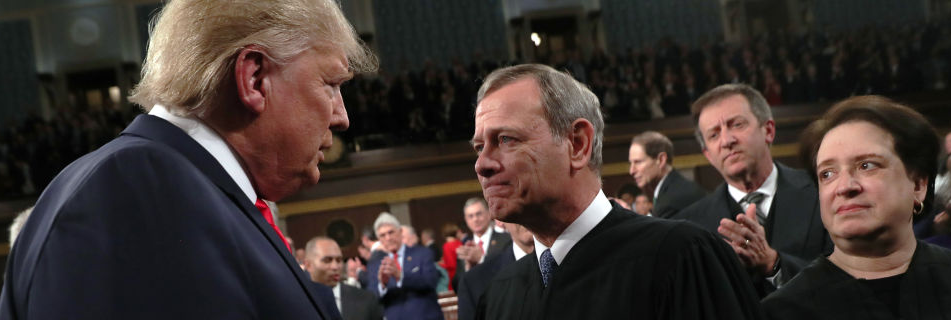On Thursday, the Supreme Court of the United States ruled on whether Congressional subpoenas for President Donald Trump’s financial documents (e.g., tax returns, account activity, foreign transactions, etc.) fell within Congress’ authority. The nation’s highest court sent the case back to lower courts, saying they did not properly consider the important separation of powers issues at hand.
This 7-2 decision effectively means that—regardless of the ultimate decision—Congress and the American public will likely not see these financial documents before the 2020 presidential election.
A YouGov snap poll of 1,000 registered voters finds that registered voters are split on the Supreme Court’s decision to send this case back to the lower courts (48% approve and 44% disapprove). That split depends largely on political party: self-identified Republicans overwhelmingly support (77%) the decision, which stalls Congressional efforts to secure President Trump’s financial records. Two-thirds of self-identified Democrats (67%) disapprove of the Court’s choice.
Democrats in the US House of Representatives have sought various financial records from President Trump that they said would aid in their legislative duties. The president’s legal team has maintained that the financial records do not fall within the legislative purposes of the function of Congress and that it fails to consider the issue of separation of powers.
Though voters are split on the Supreme Court move, about half (55%) believe that presidential candidates should be required to publicly release their recent tax returns, which could give potential voters information about the candidate’s financial background. About one-third (37%) of voters say this should not be a requirement, and three-quarters (74%) of Republicans agree.
Democrats overwhelmingly believe presidential candidates should be required to release recent tax returns (86%), while just one in five (21%) Republicans say the same.
Democrats are also particularly likely to say that knowing a presidential candidate’s financial background would help them decide who to vote for (79%), compared to about three-quarters of Republicans (73%) who say that information would not make a difference in who they vote for. A plurality of Independent voters—much like registered voters overall—tend to say that this would help them decide who to vote for ahead of a presidential election.
Regardless of whether a presidential candidate’s financial background is important to a voter’s ballot decision, most (65%) believe a candidate’s financial interests does impact her or his ability to lead. Most Democrats (90%) and Independents (64%) say this is very or somewhat relevant to a candidate’s ability to lead the nation, compared to one-third (33%) of Republicans.
Related: Most Americans still want President Trump to release his tax returns
Learn more about YouGov Direct and sign up for the YouGov Daily e-newsletter
Methodology: This article is based on a flash poll of 1,000 registered voters surveyed via YouGov Direct on July 9, 2020 between 11:00 a.m. and 11:45 p.m. This YouGov Direct Poll was weighted according to age, gender, race, education, and 2016 presidential vote. The margin of error is ±4.3%
Image: Getty












